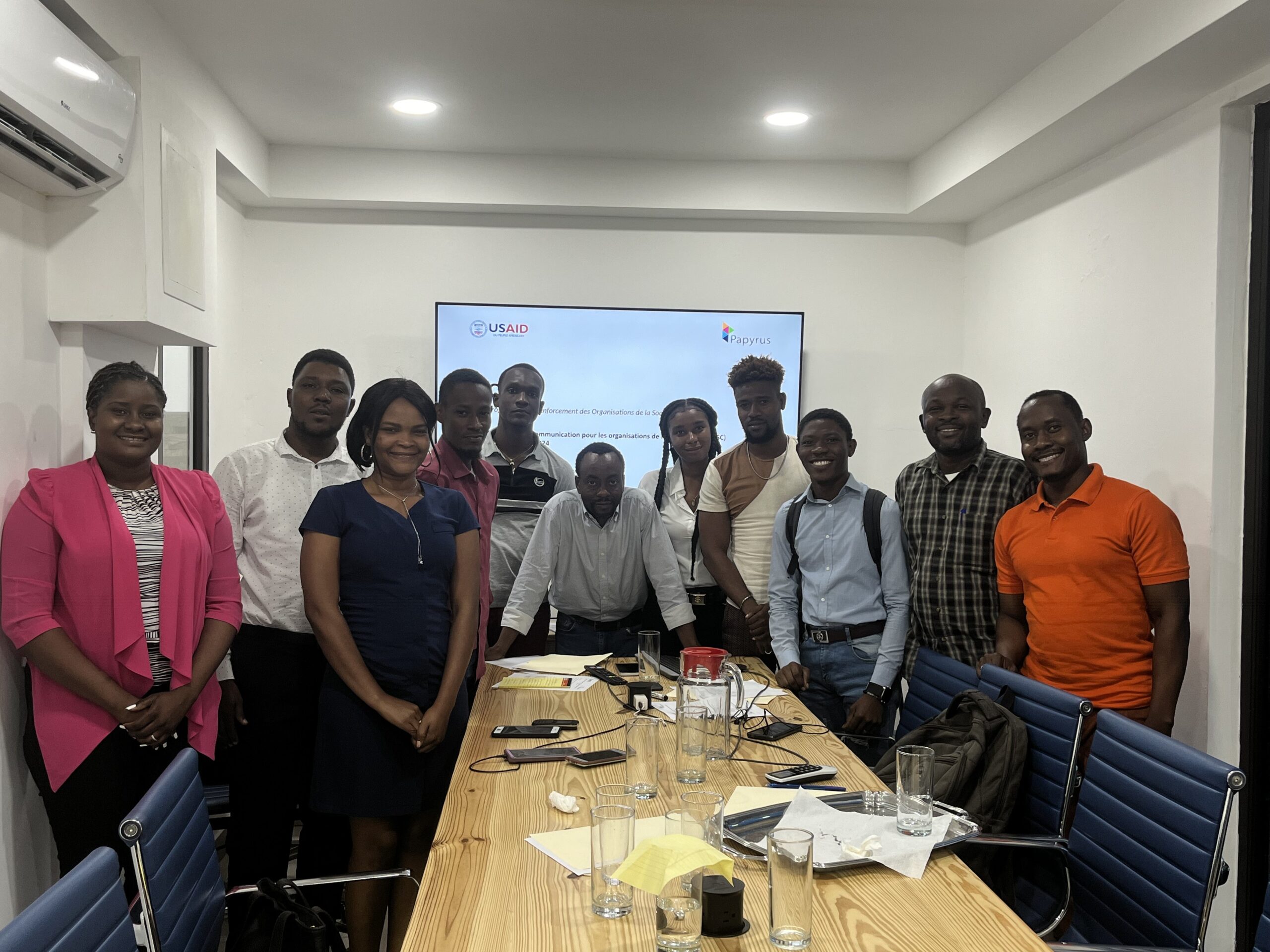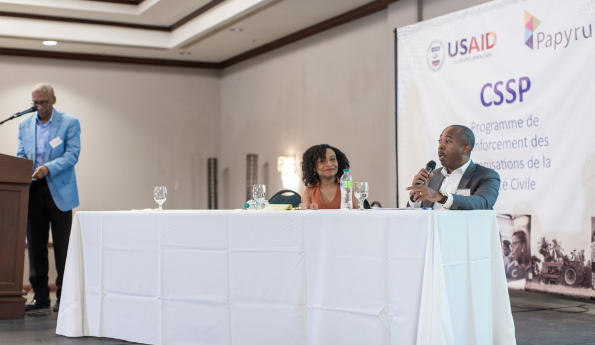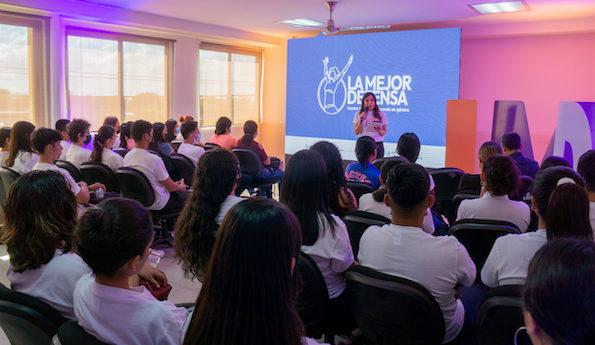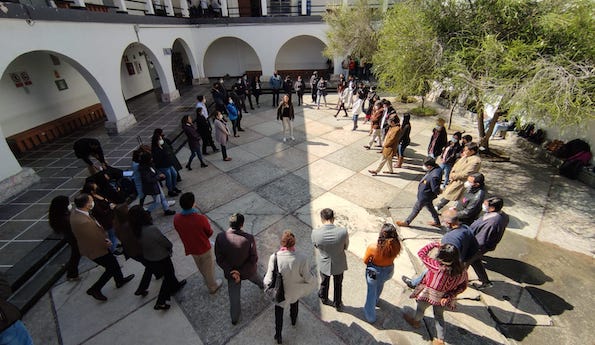This story details a capacity building training that took place in Haiti in January 2024, prior to the recent instability and political upheaval. We are monitoring the situation closely, and we will continue working to help support the people of Haiti through our program for as long as possible.
Communications and outreach are a critical part of any effective advocacy campaign, ensuring public support and garnering new stakeholders and champions. In Haiti, Counterpart supports the Civil Society Strengthening Program, funded by USAID, working to strengthen the capacity of civil society organizations (CSOs). Launched in October 2022, the program aims to strengthen the advocacy and administrative capacities of CSOs; build effective civil society networks at the national and local levels; and enhance relationships between civil society and development actors. A consortium led by Papyrus Haiti implements the project, with Counterpart providing capacity building support around improving advocacy and outreach.
As part of this effort, Counterpart hosted a communications training for partners on January 11 and 12, 2024. The hybrid two-day training used a participatory approach, encouraging collaboration both online and in person. The training aimed to equip organizations to develop and implement effective communication strategies adapted to their needs and help them make better use of traditional and new media in their communication strategies. At the end of the training, civil society participants were better positioned to understand the importance of communication to achieve their objectives, better understood how the media works and know how to take advantage of media coverage to achieve their goals, and had learned new techniques and strategies to utilize social media effectively.
To ensure participants were best positioned to learn the skills necessary to increase their impact, prior to the training the program provided a communications self-assessment template and advised participants on how to use it. The assessment results highlighted that none of the organizations had a communications plan and that most of their social media accounts were not regularly updated.

Papyrus and Counterpart leading the communications and outreach training for civil society partners in Haiti.
A Renewed Focus on Communications Efforts
In interviews conducted following the training, participants reported that they had gained a better understanding of the importance of communication and outreach for civil society. It became clear that even if an organization could not afford to have a fully staffed communications department, it must have at least one person focused on communications. Participants also noted that they now understand that communication channels such as social media are of great importance to the efficacy of an organization.
These testimonies align with the findings of the post-training assessment. Comparison of the pre- and post-training scores shows that the participants greatly enhanced their general communications knowledge. Before the training, participants scored an average of 38%. After the training their competency scores jumped to 69%.
The Counterpart team determined that the majority of the participating organizations could benefit from additional communications capacity building training. While some organizations are more advanced in terms of current communication skills, follow-up trainings can be conducted on an individual basis and tailored to specific needs. The program next plans to focus on enhancing writing skills, content creation for social media and websites, and media outreach. These skills will help the groups share the important work they are doing for Haitian citizens and garner support for their causes.






